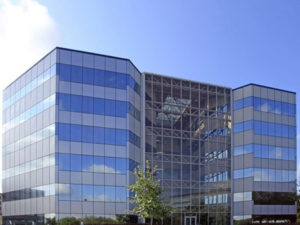U.S. Methanol’s decision to relocate a methanol production plant from Rio de Janeiro, Brazil, to Institute underscores West Virginia’s ability to compete in the global chemical industry.
Its decision making process for site selection could serve as a textbook example of how our area’s natural gas feedstock creates competitive advantage.
The fact of the matter is, U.S. Methanol could reassemble its plant just about anywhere along the U.S. Gulf Coast. But instead, it will transport the plant inland to make use of our area’s methane-based supply chain.
As background, the methanol-based chemical compound that will be produced at the facility should be differentiated from the methanol once synonymous with wood alcohol in that it is produced from highly efficient, low-temperature conversion of natural gas rather than the industrial-scale destruction of trees.
Methanol is resident in a dizzying array of consumer products — from paints to solvents — but it has also proven to be an environmentally superior alternative to a number of deleterious industrial compounds, including ozone-depleting chlorofluorocarbons.
In fact, it is readily biodegradable and is even used in wastewater treatment plants to denitrify processed water and protect sensitive aquifers.
But it is the promise as a liquid energy source, including its use as a diesel fuel substitute and primary constituent of M85 gasoline, which has garnered the most attention.
“In the near future, methanol-blended gasoline will play a role in supplanting foreign crude oil imports, and in the process, create cleaner burning fuels that will benefit the planetary environment,” said Richard Wolfli, chief operating officer of U.S. Methanol.
This ambitious perspective is indeed plausible. An entire methanol-based economy has been proffered for the United States with its scope so far-reaching in its industrial applications it earned leading advocate and University of Southern California distinguished professor George A. Olah the Nobel Prize in Chemistry in 1994.
U.S. Methanol’s upside potential for West Virginia’s chemical industry is huge and is best characterized by Wolfli, whose energy industry pedigree stretches from Western Canada’s Sedimentary Basin to the United Kingdom’s North Sea.
“U.S. Methanol looks forward to making a positive economic impact in West Virginia by creating jobs and operating safely in the communities in which we work; we foresee a resurgence of economic activity in West Virginia based on over 100 years of natural gas reserves that will act as a feedstock for domestic chemical companies,” Wolfli said.
West Virginia policymakers should take heart in these comments as many in the state’s traditional chemical industry have long held the very competitive advantages that helped build the state’s industrial base along the Kanawha and Ohio River Valleys are still available today.
In fact, some hold that West Virginia could once again enjoy a new golden age of chemical production, and one need only to take into account the breadth of our numerous natural gas plays to realize it is well within the realm of possibility.
That U.S. Methanol made the decision to relocate facilities and invest heavily in chemical manufacturing in West Virginia attests to the belief and further reinforces the vision for a better tomorrow.
Wolfli said it best:
“U.S. Methanol is a strong supporter of domestic manufacturing. We see a bright future in the coming decade for companies and workers during a reinvigoration of the heartland of America.”
Thank you, U.S. Methanol. We look forward to you making the Mountain State your new home.
Howard Swint, of Charleston, is a commercial property broker.

